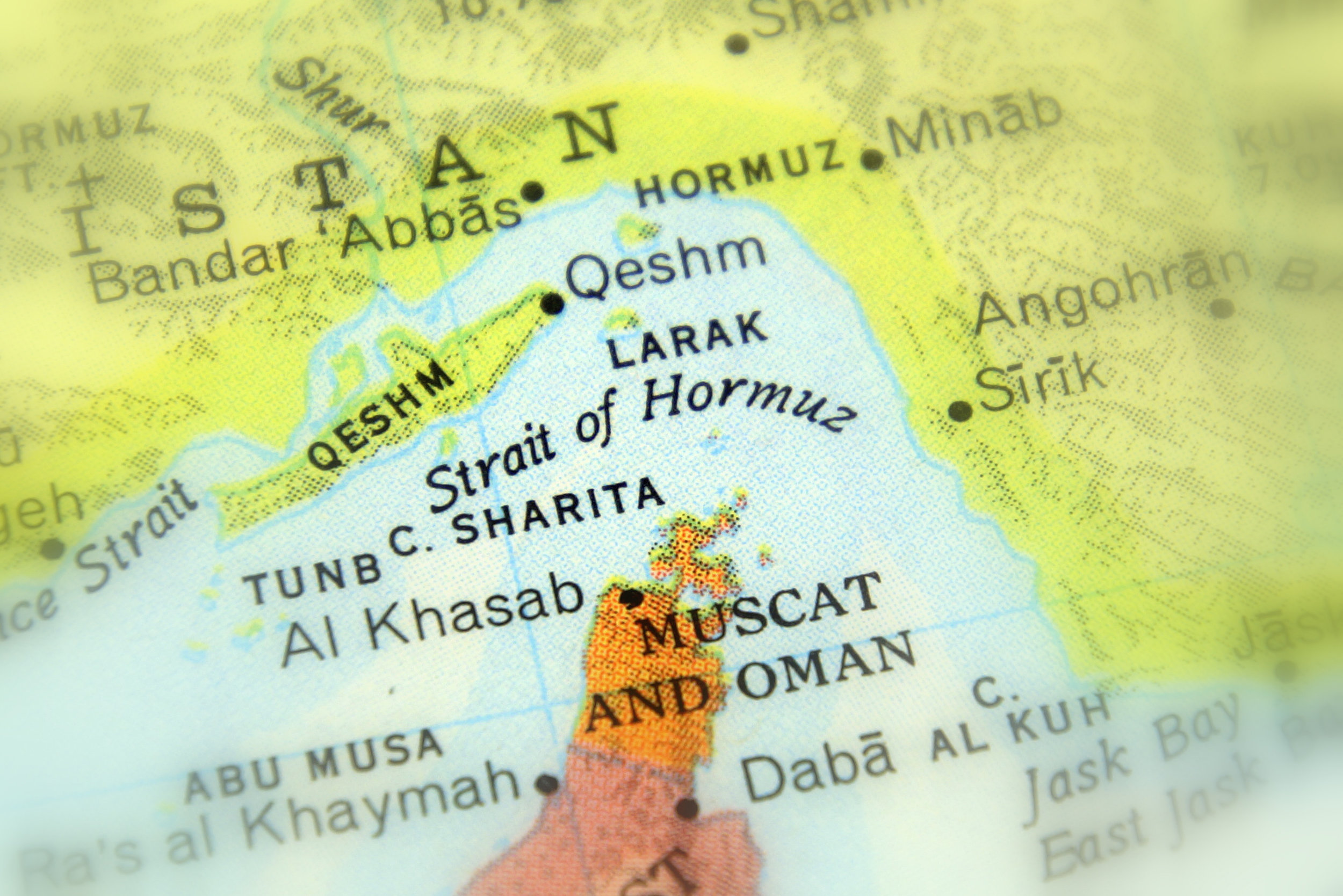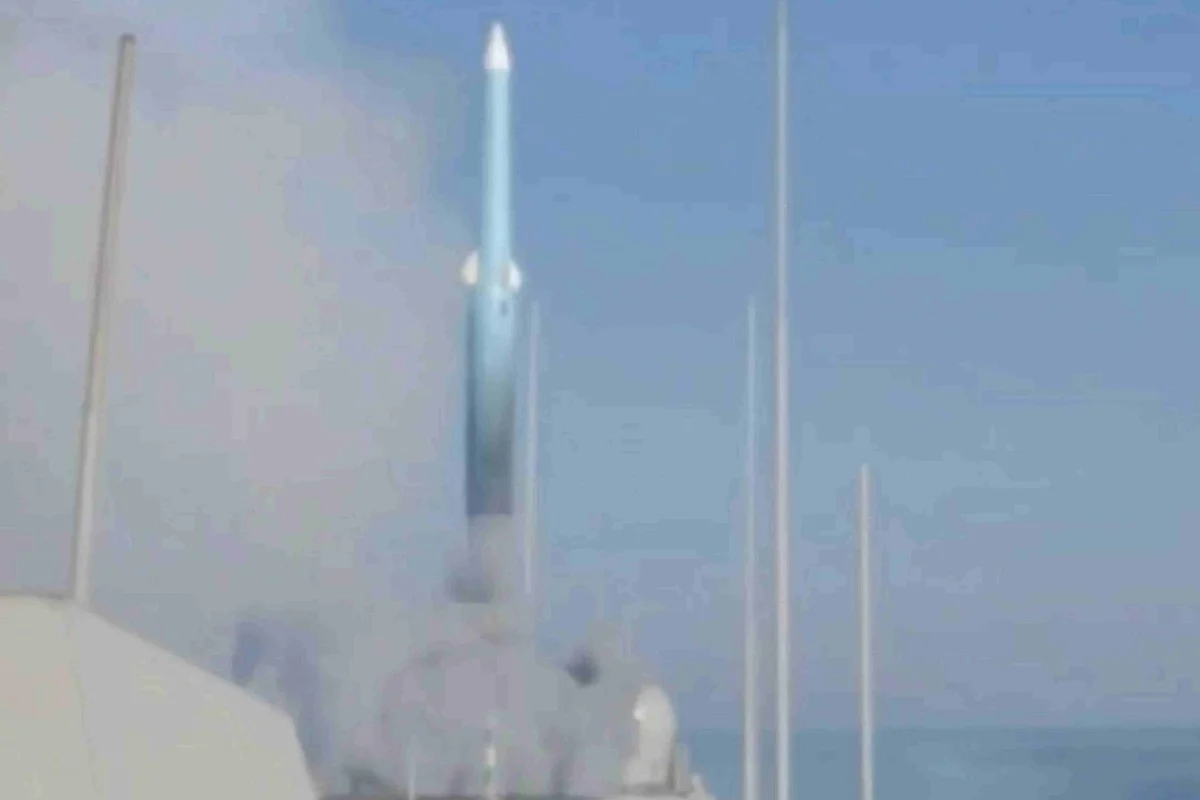PICTURED: A crew member of Kokuka Courage receiving treatment from U.S. Naval members of the USS Bainbridge, one of the American vessels that responded to the distress call.
Gulf of Oman, Thursday, June 13th, 2019. Two oil tankers sailing through the strait of Hormuz in the Gulf of Oman have sustained significant damage from reported explosions. Early reports suggested the blast which damaged the Japanese-owned Kokuka Courageous was caused by a torpedo.
The crews sent out distress signals, and both the Iranian and United States’ navy helped get all sailors on both vessels to safety. The smoke hadn’t cleared the horizon before the United States blamed Iran for the attack.
U.S. Central Command Officials released a grainy video showing what they claimed to be Iranian Revolutionary Guard members dislodging an unexploded mine from the side of the ship.
“It is the assessment of the United States that the Islamic Republic of Iran is responsible for the attacks,” said Secretary of State Mike Pompeo, without referring to any evidence in his statement.
He credited U.S. intelligence with the discovery, and referenced the type of weapons used, the expertise needed to carry out such a plot, and the earlier incident of a similar nature in May.
Last month 4 oil tankers were damaged just outside the port of Fujairah in the Persian Gulf by what Emirati officials described as an “act of sabotage,” however they too failed to produce any incriminating evidence.
Iran has denied both attacks entirely, putting them down as aggressive tricks played by their enemies to bring war upon Iran.
“According to international law, the Strait of Hormuz is a marine passageway and if we are barred from using it, we will shut it down,”
Groundhog Day
The always charismatic Mohammad Javad Zarif, Iran’s foreign minister denounced the claims as dangerous and ridiculous, saying on Friday that the United States “immediately jumped to make allegations against Iran without a shred of factual or circumstantial evidence”.
“Suspicious doesn’t begin to describe what likely transpired this morning”. he tweeted earlier.
While the video released by Central Command shows seamen removing an object several hours after the ship had sustained damage, Yutaka Katada, owner of the Kokuka Courageous thought the possibility of a mine attack unlikely, telling reporters on Friday that the vessel’s crew saw a “flying object” before a second blast on the boat.
Continue Exploring – Tehran Plays David As Europe Rushes To Relieve Pressure From Goliath’s Crippling Sanctions
To many, the attacks came across as convenient and suspicious. Former U.S. Senator and Republican presidential candidate Ron Paul showed a video during his daily news program, The Liberty Report, of Secretary of Defense John Bolton declaring his support of dishonesty towards the American people and the world in order to protect American interests.
Faulty U.S. intelligence was to blame for the botched invasion of Iraq in 2003 which led to the deaths of hundreds of thousands of innocent people and several thousand American soldiers in the search for imaginary nuclear weapons.
The unity airstrikes of Syrian air capabilities after the perceived chemical weapons bombing by the Syrian air force which was recently proven false by the OPCW is another example of intelligence failure.
Recently, Iran welcomed German representatives who brought with them the payment system, known as INSTEX, (Instrument in Support of Trade Exchanges) that will help partially revitalize the Iranian oil sector and shield the country from crippling economic sanctions re-imposed by President Trump in late 2018.
This was the result of the hardline stance by Tehran over the European end of the 2015 nuclear treaty which former President Barack Obama helped create, and which President Trump pulled out of unilaterally. Europe’s end of the bargain which saw a limitation in Iranian uranium-enrichment operations was to act as protection against any future economic pressure on Iran’s oil industry from the United States.
June 7th, 2018. PICTURED: Prime Minister Shinzo Abe and President Trump meet in the oval office.
Casus Belli – A Cause for War
A disruption of one of the biggest shipping lanes in the world is something Iran has not completely removed from her options, and after the United States announced its intention to reduce Iran’s oil export capabilities to zero, Tehran begged to differ.
According to Al Jazeera, Iran’s President Hassan Rouhani said in December: “If one day they want to prevent the export of Iran’s oil, then no oil will be exported from the Persian Gulf”.
“According to international law, the Strait of Hormuz is a marine passageway and if we are barred from using it, we will shut it down,” General Alireza Tangsiri, commander-in-chief of the IRGC’s navy, said in April.
Iran has proven that she will not simply roll over in the face of U.S. aggression; evidenced by the 60-day ultimatum they offered Europe to save the JCPOA nuclear deal some weeks ago, and proven successful by Europe’s rapid fulfillment of their promises.
With that in mind it’s not impossible to imagine that even though it could mean contending with the might of the American military, a statement that such pressure does not come without consequences could so be exercised upon vessels passing through international waters so close to Iran’s border.
However despite these threats, even more circumstances would suggest that Iran had no part in the damaging of the vessels Kokuka Courageous and the Norwegian-owned Front Altair.
Japanese Prime Minister Shinzo Abe was actually in Iran, meeting with Supreme Leader Ayatollah Ali Khamenei on diplomatic purposes when the explosions were reported. Mr. Abe was there as part of an agreement Abe made with President Trump during Trump’s recent visit to Tokyo. His plan was to help ease tensions between his country’s two allies.
Japan was granted a sanctions waiver, allowing them to continue to buy Iranian oil through the tough economic measures. Japan is the world’s 4th largest consumer of oil, but in a statement Japan’s Minister of Economy and Trade, Hiroshige Seko, told reporters the government did not see any need to tap national oil reserves following the U.S. decision.
If you place the statement of Mr. Katada, a witness and primary source on the balance sheet, it makes no economic, diplomatic, or sense of any other kind for Iran to attack a Japanese vessel. The other ship, Front Altair, seems just as unlikely a target for Iranian naval targeting based on reports from Al Jazeera that there was a large Russian contingent among the Front Altair’s crew.
“the Saudis are always willing to fight Iran to the last American”.
Russia is one of Iran’s closest allies and the last person Tehran would look to pick a fight with is Vladimir Putin.
A 2010 cable from the Obama-era Defense Secretary Robert Gates could perhaps shed some light on the situation. He said in a cable that “the Saudis are always willing to fight Iran to the last American”.
As recently as Friday, Saudi Arabia have sustained a number of attacks on home soil mounted by the Houthis in Yemen, a revolutionary force which the Saudi-led coalition has fought brutally and inhumanely, triggering the greatest humanitarian disaster of the decade.
Al Jazeera reported on the connection which the Saudi’s feel lies at both the heart of their Houthi troubles, and the oil tanker explosions.
“From my perspective … we can connect it to the Houthi attacks at Bab al-Mandeb,” Colonel Turki al-Maliki told reporters in Riyadh. The Saudi-led coalition accuses Iran of arming the Houthis, but Tehran denies the allegation.
Sec. of State Mike Pompeo said that the type of weapons used are “too sophisticated for “regional proxies”. However just three weeks ago, Pompeo sent a series of letters to congress saying that America would be selling $8 billion in weapons to Saudi Arabia, and that there was no need for congressional review.
We’ve been arming them for their conflict in Yemen for several years now, and certainly any advanced weapon the Iranians possess, the United States, and therefore Saudi Arabia, also possess.
Finally there’s a palpable sense that Iran will get sanctions protection from Europe, with German Foreign Minister Heiko Maas saying the payment system is all but ready to “circumvent” American sanctions.
“…all the formal requirements are in place now, and so I’m assuming we’ll be ready to use it in the foreseeable future,” he said.
Is it possible Washington sees this as a form of defeat in the face of rising tensions and a greater application of pressure? In America’s past, when civilian leaders have prevented military officials from accessing military options, declassified evidence reveals to us that naval false-flag attacks like the Gulf of Tonkin, similar in nature to the Strait of Hormuz event, are exactly the sort of operations they turn to.





